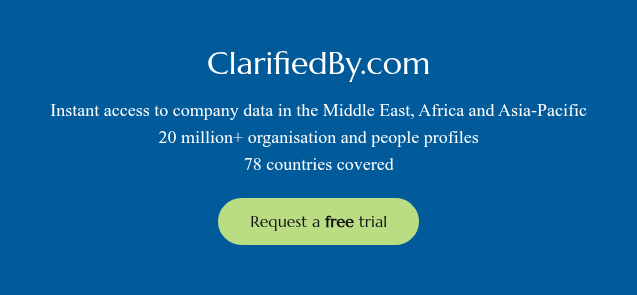Resolving disputes such as unpaid debt, unsettled judgments and contractual claims is a time-consuming, complex and unfortunate cost of business. When a business dispute becomes legal, the primary consideration is whether the projected investment of money, time and energy will be offset by the potential upside, which ultimately turns on whether the counterparty can pay.
Credibly assessing payment capacity may be a perfunctory exercise in established business jurisdictions, where company accounts are audited and current: the work of a competent accountant. Elsewhere, a more nuanced approach is required.
The payment capacity of a counterparty comes from its access to cash and ownership of assets, the sale of which may be used to settle debts. In many Middle Eastern and African jurisdictions, this information tends not to be readily available, as only a fraction of companies publish audited accounts detailing their cashflow and assets. I sense the potential claimant coming down with a headache. So, what’s to be done?
How to manage your business dispute
When weighing up a business dispute and managing recovery risk, I offer the afflicted
claimant the following three pieces of advice.
1. Start early
Mike Tyson said: everyone has a plan, and then you get punched in the mouth. Even so – and no doubt Iron Mike would agree – when you’re entering a fight it is better to have a plan and be forced to adapt it than to have no plan at all.
That means consulting with both legal and investigative specialists; and, crucially, these advisers must work in tandem. The risk of getting six months down the track with your legal strategy only to establish that your counterparty is penniless – or, vice versa, conducting an exhaustive payment capacity assessment, only to be informed by your newly-instructed legal team that the case is weak – is real, avoidable and painful.
The sooner you engage credible legal and investigative advisors, the more protected
you are against longer term difficulties.
2.Follow your head, not your heart
Business disputes can be emotive. The more you approach your dispute as a disinterested outsider (your advisers can help with this) the more likely you will accurately assess the commercial basis for action. Before moving forward, make sure that your legal and investigative teams agree on strategy – and that commercial decisions are taken within the framework of the amount you anticipate recovering.
Pursuing a grudge can be a costly and exhausting mistake. While the lure of putting that infamous counterparty in the dock may be irresistible, be prepared to accept that the pursuit of one’s hour in court may not be worth it.
3 Go local
The Middle East and Africa are vast regions with a bewildering number of separate regulatory frameworks for corporate information disclosure. Moreover, these frameworks are evolving rapidly, which allows the wily counterparty to hide assets through complex and opaque ownership structures and keep its financials in the dark.
One unifying aspect of the regions, however, may be a sensitivity to investigations into private companies and individuals, even in the context of a legitimate legal dispute. Gathering information on banking relationships and the ownership of shares, property and vehicles, for example, requires both knowing where registers of such assets are held, and the ability to build trust through cultural awareness, and – crucially – fluency in local dialects.
When conducting due diligence on a dispute, ensure that your investigative – and legal – advisors are true regional specialists with jurisdiction-specific expertise.
Good practice in any dispute
When approaching a business dispute in the Middle East and Africa, the same principles apply to overall strategy as to assessing the counterparty’s payment capacity and tracing assets: plan early; make calculated, commercial decisions; and take advice from partners who understand the local regulations and culture, have a track record of providing dispute-focused intelligence, and can manage the entire dispute, from preliminary diligence until final enforcement, when the money lands in your nominated escrow account.
And, if you can avoid it, don’t get punched in the mouth.
Diligencia provides corporate intelligence and due diligence solutions for emerging markets across Africa and the wider Middle East. Our vision is to deliver clarity, inform opinions and enable decision-making for clients in jurisdictions often poorly served by accurate public domain information.




